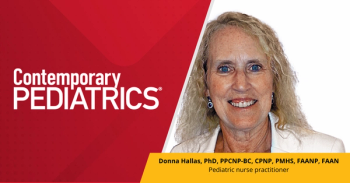
Protecting your professional reputation from online trolls
Here’s solid advice for what to do when your online healthcare advocacy suffers harassment and false reviews.
Advocating for patients and public health issues is an important part of being a physician. Yet in today’s digital world, clinicians who advocate online can be opening themselves up to harsh commentary, cyberbullying, and harassment.
Elizabeth Meade, MD, FAAP, chief of Pediatrics and director of Medical Communications at Swedish Medical Center, Seattle, Washington, and Wendy Sue Swanson, MD, MBE, FAAP, chief of Digital Innovation at Seattle Children's Hospital, Washington, shared their experiences in handling online criticism at a session titled "How to handle online challenges to your professional reputation" on Saturday. November 3, at the American Academy of Pediatrics (AAP) 2018 National Conference and Exhibition in Orlando, Florida. The goal of the session was to help pediatricians who choose to promote children's health issues through social media handle persistent, vocal, or harassing individuals online, especially when it comes to hot-button topics such as vaccinations and circumcision.
Meade and Swanson shared real-life experiences and tips on what to do if you become the subject of false-negative reviews or even harassment requiring legal intervention.
Speaking to Contemporary Pediatrics, Swanson says it's important for pediatricians to advocate and educate on children's health issues, and to handle themselves in an online space.
"We live in a time now where there's this fluidity in who we are in real life and who we are online," Swanson told Contemporary Pediatrics. "Practices have done a good job in learning how to deal with differences of opinion in the real world. There should be no different approach to interfacing with patients online."
There is a high likelihood of facing fallout of some kind for sharing positions and being politically involved to protect families, Swanson says, adding that there is a lot of antiscience rhetoric in the media that physician advocates will face. So, what should clinicians do when they find themselves in online crosshairs?
Support is a big part of dealing with online advocacy and the criticism that can follow. "As we're asking physicians to go online and share positions, we need a follow-up to help them understand that not everything will be well received, and that when it's not, they might be personally attacked," Swanson says. "It's hard, and it can be scary at times."
Swanson shared the following tips with Contemporary Pediatrics:
1. Know what you're getting into. Go forward as a public-facing physician knowing that although it's an important part of the practice of medicine to have a public-facing part of your career, you're going to be misunderstood at some point. Swanson recommends using hashtags to garner colleague and stakeholder support, cite research to support your opinion, and direct others to join in your conversation to offer support to your stance.
2. Use your group. At home or at work, lean on your support system when times get tough. "People do need to support you in your mission," Swanson says. "It's real and true that this is a long-endurance sport of being a public-facing physician."
3. Set filters and privacy settings. Although it may seem time consuming to set up profanity filters, business and personal profiles, and choose special settings on social media accounts, Swanson says it can be more time efficient to do these things up front than to deal with the effects of not having these safeguards in place. "It's part of the commitment of being online," Swanson says.
4. You can revise, but don't delete. Never delete your own words, Swanson warns. "You're allowed to change your mind, but you don't have to go back and delete," she says. "Social media is built on authenticity. It isn’t smart to write a bunch of stuff, get attacked for it, and take it down. You should be able to back it up. You can change your mind, but you have to be willing to explain yourself.”
Remember that your efforts will be rewarded in the end. "We have to do this. We have to be brave, but we also have to know going into it that these things will happen," Swanson says. "It affords clinicians a great opportunity to have a larger voice to advocate for children with a larger group of people and contribute to change."
Newsletter
Access practical, evidence-based guidance to support better care for our youngest patients. Join our email list for the latest clinical updates.









